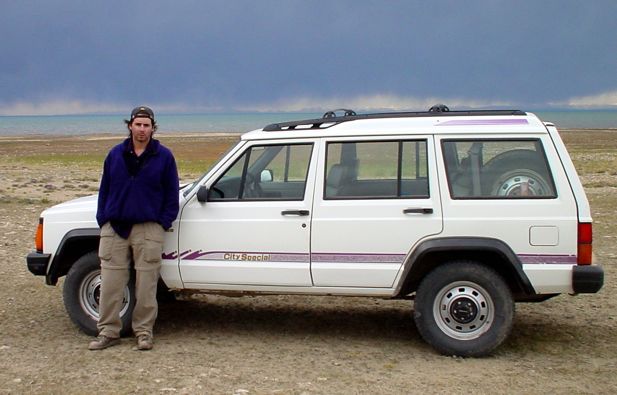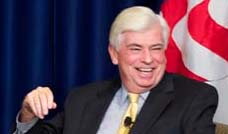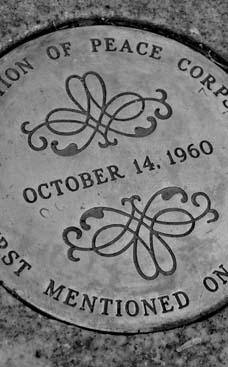
"When I first started freelancing full time, in 1999, I did a lot of travel by train. And I had traveled by train and boat during my Peace Corps years. So I spent some time seeing the country from that perspective, but by 2001 I was ready for a new mode of transportation. I appreciated some of the things that a car allowed me to do-report more freely, for example, going wherever I pleased. It gave me more flexibility in terms of being able to camp. And it allowed me to avoid hiring a local driver who might tip off the authorities. By that point I had been reporting long enough to know some of these pitfalls. Also, like a lot of people from the Midwest, I've always enjoyed driving. I just like being on an empty road, and there are a lot of them in western China."
Interview With Peter Hessler: Behind the Wheel in China
Interview With Peter Hessler: Behind the Wheel in China
Travel Interviews: Frank Bures asks the New Yorker writer about his new book, "Country Driving: A Journey Through China from Farm to Factory"
02.18.10 | 10:23 AM ET
Peter Hessler ChinaPeter Hessler at Qinghai Lake (Photo courtesy of Peter Hessler)
Back in 2001, Peter Hessler looked at his hands. He'd been living in China since 1996, when he began teaching English in a school in Fuling, an experience he recounted in his book, River Town. But now he wanted to go farther into the country. Since he had at least three good fingers on each hand (as well as both thumbs), he was eligible for his Chinese driver's license, and he went in to take his test.
The test featured questions such as, "If another motorist stops you to ask directions, you should: a) not tell him; b) reply patiently and accurately; c) tell him the wrong way," and, "If you give somebody a ride and realize that he left something in your car, you should: a) keep it for yourself; b) return it to the person or his place of work as quickly as possible; c) call him and offer to return it for a ransom." Of course, Hessler passed, and his license was, in some ways, a passport into a China he'd never seen-a China that is changing so fast it may never be seen again. The trips he took resulted in his new book, Country Driving: A Journey Through China from Farm to Factory, a triptych of pieces about his travels. (Read a World Hum excerpt here.) I emailed Hessler and spoke with him by phone at his home in Ridgway, Colorado.
World Hum: You lived in China for five years without a car. Do you feel like you missed things during that period?
Peter Hessler: Not really. The Peace Corps actually had a rule that you got thrown out automatically if you were caught driving. The officials at the college [where I was stationed] were impressed that Adam Meier and I knew how to drive, and sometimes they'd ask us to drive back to campus after these drunken banquets, after endless shots of baijiu. We always played by the rules and declined. So I suppose I missed out on that particular driving experience.
I think the timing for the license was good. When I first started freelancing full time, in 1999, I did a lot of travel by train. And I had traveled by train and boat during my Peace Corps years. So I spent some time seeing the country from that perspective, but by 2001 I was ready for a new mode of transportation. I appreciated some of the things that a car allowed me to do-report more freely, for example, going wherever I pleased. It gave me more flexibility in terms of being able to camp. And it allowed me to avoid hiring a local driver who might tip off the authorities. By that point I had been reporting long enough to know some of these pitfalls. Also, like a lot of people from the Midwest, I've always enjoyed driving. I just like being on an empty road, and there are a lot of them in western China.
It seems that being able to drive opened up new parts of China to you, which you hadn't known before. How did it change the way you saw the country?
The main thing was that it took me off the beaten path. If you're going by train or boat, you will generally be following routes that are commonly used, and you'll go through bigger settlements. Any time you're fully independent you have more flexibility. The same is true if you're on foot or bike, of course. I've done long walking trips in the past-I did the coast to coast walk across northern England many years ago, and I also spent two months entirely on foot in Switzerland, crossing the country by old pathways. Those were wonderful experiences but in some ways they might be harder to write about. For one thing, you are so tired-at night I'd just crash in my tent.
With the car, the main thing was that I could pick people up. I stopped for hitchhikers all across China, mostly young people who were leaving the villages for city jobs. It gave me a new perspective on that process-I'd talk to these folks, and then I'd stop in the villages, where I could see how few young people had stayed. Of course, I was aware of how important these changes were before I made the trip, but I hadn't experienced it in such a direct way. Also, driving reminded me of how beautiful northern and western China are. Living in a big city like Beijing, and traveling to other big cities to report, it can be easy to forget how beautiful China is. So many of these mountain and desert landscapes are just magnificent.
Do you think that driving changed your relationship to the country, or to people you met?
In order to get a license, I had to be fully registered, with a resident journalist visa, an official address, paying taxes, etc. It required a lot of paperwork and over the course of that process I realized that I was going to be in China for a number of years. When I first moved to Beijing in 1999 that wasn't at all clear. I was freelancing unofficially and I always knew there was a chance I wouldn't stay (or would get kicked out). So the license was part of this decision to make China a legal, longer-term home. It reminded me that I was committing to writing about the place in a serious way.
I felt more comfortable approaching people in the car when I was driving. In the past I had made some reporting trips where I hired a driver, and I was never crazy about that dynamic. Often the drivers are great, and they can teach you about the area, but it can also turn into an annoyance-in China the drivers have a tendency to re-negotiate fees halfway through the trip. Sometimes it turns into an endless bargaining session; it's a distraction.
And there's a certain dynamic you have when you're the white guy getting driven around by a local. It's the same if you have a translator. I always felt much more comfortable alone, and in the car it made it easier to approach people. They found it interesting that I was alone, so they were curious. And since I didn't have a retinue there wasn't this sense of the "official foreigner" arriving in town. Finally, it established a level of competence, or at least familiarity. People seemed to sense that even if I stood out, I must have some connection to the place because I was driving my own vehicle. I felt like I belonged.
You met a lot of suspicion when you got far up-country. That seemed to contrast with the more open atmosphere in the urban areas. Is that still the case these days?
Peter Hessler ChinaPhoto by Darryl Kennedy
There wasn't too much suspicion among average people. Villagers were generally very open and trusting. Of course, the official authorities were different. My first driving trip ended when the foreign affairs office kicked me out of Yulin, in northern Shaanxi. But that place has always been notorious for police problems-I know other foreign journalists who have gotten kicked out of there. And my friend Ian Johnson had done some sensitive reporting on a major protest in that region, a couple of years before I was there. When the cops kicked me out, they alluded to Ian's stories. You don't want to go someplace where another journalist has fouled the waters.
On my second journey I had various minor problems, but I was always able to talk my way out. People seemed more alert as I went west, but they didn't seem to know exactly what to do with me. And generally they were good-natured. I got stopped at a roadblock near Qinghai, on the Tibetan plateau, and the cop, who looked about 12 years old, took a look at my license. "It looks just like a Chinese license!" he said. "It is a Chinese license," I said. He seemed to think that this document issued entirely in Chinese characters had come from the U.S., like me. People often were simply clueless.
You write that in China your learning curve never flattened out, because "China is the kind of country where you constantly discover something new, and revelations occur on a daily basis. One of the most important discoveries is the fact that the Chinese share this sensation. The place changes too fast ... We were all out of place; nobody has today's China figured out." I found that interesting. As a writer, I imagine there's some advantage in that.
I suppose that's why I stayed for more than a decade and wrote a set of three books. I felt like I could undertake these big projects without repeating myself. Some of it was simply the size and range of the country, but it was also the issue of change that you mentioned.
I loved how the man you rented the car from asked you if you'd eaten the dog you hit. You didn't then, but have you thought about it since?
I have no problems with eating a dog; I've done it before. I just wouldn't want to deal with skinning the damn thing. To be honest, I'm terrified of dogs. I had a paper route as a kid, and I was a distance runner, so I had a lot of bad experiences with dogs in my formative years. And then I lived abroad for 15 years, in places where people don't have so many pets. It's actually a hard thing about coming back to the States. I'm not very comfortable around dogs and Americans find that really strange.
Since returning I've been attacked by dogs probably 10 times while I'm running. Usually I'm able to fend them off, but I got bit once not long after I moved back to the States. I had to go to a doctor and get it cleaned up. And the owner went completely hysterical. When I went to check to make sure the dog had his shots, she was crying uncontrollably. Absolutely sobbing. "This is the worst thing that could ever happen!" she said. I was thinking, well, the Cultural Revolution might have been worse. And then she wrote me letters of apology in the dog's voice. They were handwritten and signed with the dog's name. It's moments like that when the United States seems as foreign to me as anything I saw in China.













